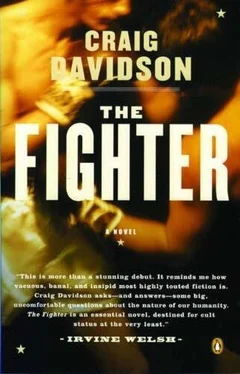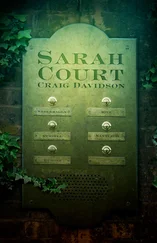One night Jack returned from the fields, filthy and itching from corn silk, to find his wife in the kitchen. The table was piled high with books on wine making.
“What’s all this?”
“What else would you have me do all day,” Barbara wanted to know, “crochet?”
Jack knew not a thing about wine. He favored Labatt 50 from pint bottles.
“You want wine, I’ll head to the LCBO and pick up a bottle.”
“I want wine, I’ll head to the LCBO and buy myself a bottle.” Barbara closed a book on the tip of her finger, keeping the page marked. “We might try making our own.”
She told him that the soil of southern Ontario, much like that of southern France, was well suited to grape growing. But wine… it conjured images of beret-wearing Frenchmen zipping down country lanes in fruity red sports cars.
An altogether foreign image, Jack thought, leagues removed from his tiny foreman’s cabin on the edge of the Ontario cornfields. Then again, why not? He knew how to grow corn; why not grapes? And a gut instinct told him that a curve might be developing; if they hopped on now they might land a few steps ahead of it.
One afternoon they headed down to the Farmers’ Credit Union and applied for a small-business loan. With it they purchased a homestead on fifteen acres in Stoney Creek, a farming community in southern Ontario. Fruit country: local farmers grew peaches, cherries, blueberries. Jack was the only one growing grapes; this incited a degree of neighborly concern. Concords? other farmers asked. Juice grapes? When Jack told them no, a Portuguese variety called Semillon, the farmers shook their heads, sad to see a young fool leading his family down the path to financial ruin.
Jack was in the fields every day that first spring, pounding posts and stringing vines. He was out in the cool dawn hours with scattered farmyard lights burning in the hills and valleys. He was out in the afternoon as the sun crested high over the escarpment, its heat burning through the salt on his skin to draw it tight. He was out in the evening with the wind wicking moisture off the soil until it was like tilling shale. Jack’s boots became so worn he padded them with newspapers; his feet turned black from the ink. For weeks they ate nothing but peaches: at night, Jack snuck into his neighbor’s groves to fill his jacket pockets. At night, they collapsed into bed, newlyweds too exhausted to do what might have come naturally.
That first winter Jack made the rounds of local bars and restaurants. Though many owners expressed skepticism at the idea of southern Ontario wine — W hat’s your next plan, one said, growing taters on the moon? — Jack’s salesmanship resulted in a flurry of orders. Springtime found them back in the fields. When Barb saw that first yellow bud flowering on the vine she broke into a giddy jig that collapsed her husband into reckless laughter.
It was a success from the outset. The wine was clean and crisp, made distinctive by the soil of a virgin growing region. The first vintage sold out by mid-winter; retail orders tripled. Word of their success spread, and the farmers who’d scoffed at Jack’s plan were soon selling their own farms to those hoping to copy Jack’s business model. Ripple Creek became the first, and was still the most successful, winery in Ontario.
Paul was four years old when the family moved from their tiny home in the field — which was really no longer a field but rather an estate — into their massive gated manor.

The winery offices were built on the foundation of Paul’s childhood home: his father, no teary-eyed nostalgic, had had it bulldozed. The foyer was paneled with oak slats bellying outward: visitors often remarked that they felt as though they were inside a wine cask — indeed, the intended effect.
Their receptionist, Callie, was pale with long blond hair, skinny but in a good way and cute. Her perfume held the bracing aroma of a car air freshener. Paul often fantasized about her: passing each other in the narrow hallway, their bodies brush accidentally-on-purpose and next thing they’re on each other, kissing and clutching, ducking into the supply room where he gives it to her bent over the photocopier.
“Mr. Harris,” she said. “Are you all right?”
“Not to worry. A mild misunderstanding.”
“You were in a fight?”
Paul didn’t care for her tone of voice: incredulous, as if he’d told her his night had been spent spinning gold out of hay.
“There was a… an altercation.”
He couldn’t quite bring himself to say fight. The word implied an exchange of blows, mutual bloodshed. Beating better expressed the reality. Mauling. Shellacking.
“Are you hurt?”
“It’s nothing much. You should see the other guy.”
“Is that so?”
Paul was filled with a sudden dreadful certainty that Callie had been there last night. She’d witnessed the whole sad affair and now could only smile as he stood there lying through his teeth.
His office was located off the lobby. On the desk: Macintosh computer and blotter, German beer stein, three high school rowing trophies bought at a thrift store.
These were his father’s idea, whose own trophies — for wrestling, and legitimately won — sat on his own desk in a much bigger office down the hall. His father thought athletic trophies accorded a desk, and by proxy its owner, that Go-Get-’Em attitude.
The nameplate on his desk read paul Harris, and under his name, in small engraved letters, his title: organizational adviser.When he’d questioned his father regarding the precise duties of an OA, he was told it was crucial that he “keep his fingers in a lot of pies, organizationally speaking.” But since his father had his own fingers in every important pie at Ripple Creek, Paul’s were relegated to inconsequential ones: the “Refill the Toner Cartridge” pie; the “Reorder Staff Room Coffee but Not the Cheap Guadeloupian Stuff Because It Gives His Dad the Trots” pie.
His nameplate may as well have read tour guide.
Every so often a buyer happened by and Paul was ordered to show him around.
He’d lead a tour through the distillery with its high cathedral ceilings and halogen lights, pointing out the presses and pumps and hissing PVC tubes, rapping the stainless steel kettles and commenting on their sturdy craftsmanship. He’d lift the lid on a boiler and stir its dark contents with a stained wooden paddle, remarking how the process had come a long way from some Sicilian bambino stomping grapes with her dirty feet. This usually elicited a laugh and soon the tour would wind back to the foyer, where his father was waiting to usher the buyer into his office.
How was he expected to learn anything — osmosis?
When bored — this was every day, vaguely all day — Paul would shut his eyes, lay his head on the blotter, and craft elaborate fantasies. Most frequent was the one where his mother and father were slaughtered by vicious street thugs, spurring Paul to embark upon a Death Wish- style killing spree. Except instead of affluent winery owners his folks were hardworking firefighters, and Paul became Rex Appleby, a tough-as-nails cop hardened by the mean streets of his youth. In the final and most satisfying scene, Paul/Rex staggers from the gang’s hideout with a switchblade sticking out from his shoulder and his shirt torn open to display his totally buff abs. He’s carrying a gas can, trailing a line of gasoline across the lawn. A thug crawls to the front door, his face bashed to smithereens, and, snarling like a dog, he aims a pistol at Rex’s back. Rex flicks the flywheel on a burnished-chrome Zippo and drops it in the shimmer of gasoline. A line of fire races toward the house and the thug screams Nooooo! as a fireball mushrooms into the twilight. A cinematic pan shot captures Appleby striding from the wreckage in super-slow motion, unblinking and ultra -cool.
Читать дальше













